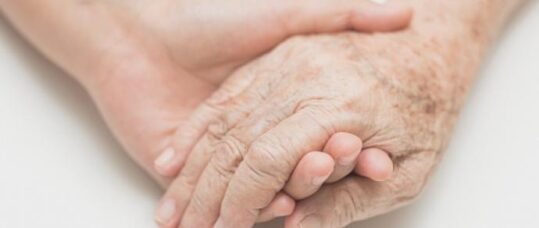New guidance surrounding death for care home nurses

Updated guidance has been released for registered nurses about handling death, including factoring in the family’s religious and cultural beliefs.
The updated Care After Death guide, published by Hospice UK today (15 December), addresses the variation in current practice surrounding verification of expected deaths.
The resource provides clarity on legal requirements and gives guidance on preparing the deceased for viewing, and facilitating organ donation.
Related Article: Advice on Guillain-Barré risk for adult RSV vaccine updated by MHRA
Hospice UK collaborated with a range of organisations to develop the additional guidance including RCN and the Royal College of General Practitioners (RCGP).
Delays in verifying deaths could cause unnecessary distress to grieving families, the report said, so it is crucial that staff are clear about the procedure and legal requirements.
“Gaps” in guidance
Nurses face greater expectations to verify deaths particularly following recent advice from the BMA that doctors are no longer legally required to do so.
Registered nurse and practice development lead at Hospice UK, Marie Cooper said: “We were made aware of some gaps in essential guidance for staff involved in care after death, especially nurses working in the community, and have worked with partner organisations to address these.
“We are confident this additional guidance will ensure that all care staff are clear about their responsibilities, make the process of verifying deaths as smooth as possible and help avoid any delays that would cause distress to grieving families.”
Related Article: Lower stroke survival odds faced by people in poorer areas
Dawne Garrett, RCN Professional Lead for the Care of Older People and Dementia, said: “Even at this most difficult time, it is important that nurses continue to provide the logistical and emotional support bereaved families need to ensure dignity and respect is maintained at all times.”
The first edition of Care After Death was published in 2011 and focused mainly on care for adults in acute hospitals, at home or in care homes. The most recent guidelines were released in April 2015 and covered for the first time post-death care in mental health services and prisons.
Clinical practice
Lead author and member of the National Nurse Consultant group for Palliative Care, Jo Wilson said: “Nurses make an enormous difference to the care of the dying person.
Related Article: Action needed to tackle untreated hearing loss in care homes
“Having surveyed care homes we are aware how much registered nurses want to contribute to the care of the deceased by providing timely verification of expected death and support for bereaved families.
“We look forward to organisations taking up this guidance, putting it into clinical practice and improving the experience of care for bereaved families.”

See how our symptom tool can help you make better sense of patient presentations
Click here to search a symptom


Updated guidance has been released for registered nurses about handling death, including factoring in the familys religious and cultural beliefs.



